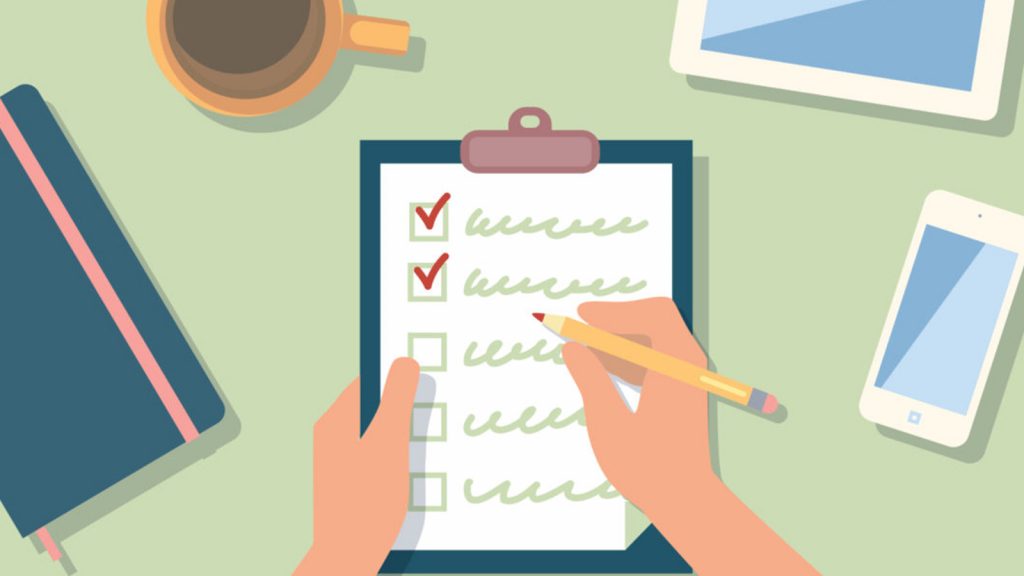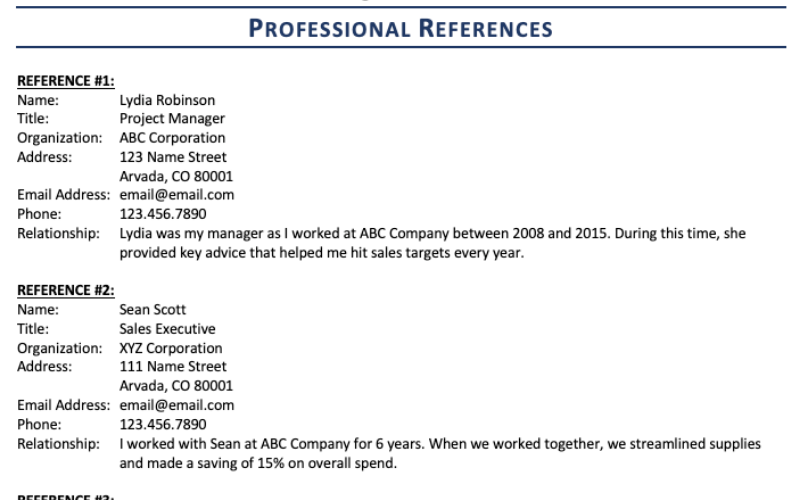Resume writing is a task that is often met with much trepidation by job seekers. After all, there are so many elements to consider! How should you format your resume? What information should you include (or exclude)? And perhaps most importantly: how many references should you list on your resume?
What are the references for in your resume?
If you don`t know what are references and what is their role in any resume, then we will help you to understand this. So, the references are the people who can tell your potential employer more about you as a professional and as a person. These people can be your previous boss, coworker, teacher, or anyone else who knows you well enough to attest to your skills and character.

They are usually listed at the bottom of your resume, with each reference`s name, job title, company, phone number, and email address.
Some employers will contact your references before they even invite you in for an interview, so it`s important to choose them wisely. Most applicants think that references in the resume are just for show, but it`s not like that. If you want to get the job, you should list only those references who will say only good things about you.
There was a time when including references on your CV was the norm. It was advised, and employers do not need to request it before you do so. These days, things are a bit different. Putting a reference list on your resume is no longer required. But does that imply you shouldn’t? Well, it really depends.
Note, that the reference may be written only by request of the employer. If you have a strong relationship with the person who will be your reference and their relationship to the job is relevant, then you should definitely list them on your resume. If you`re not sure about the strength of your relationship or the relevancy of their relationship to the job, then you may want to consider leaving them off your resume.
Should I provide references if not asked?
You should not include references or “references available upon request” on a cover letter or resume. Instead, have a reference sheet ready if the employer asks for one, and always give your references a heads up that they may receive a call. It would be much more beneficial than including references on a resume that the employer may not even look at.
When an employer wants references, they will contact you and ask for them. They will usually specify how many references they want and the method of contact (phone, email, etc.).
It is perfectly fine to wait until an employer asks for your references before providing them. In fact, some employers may view it as unprofessional if you include them without being asked.
How many references should you include on a resume?
Now that we know what references are for, it`s time to answer the main question: how many references should you include on a resume? The number of references you should include on your resume depends on several factors, such as:
- The level of experience you have
- The type of job you`re applying for
- The number of years since you graduated (if applicable)
If you`re a recent graduate or have little work experience, then you should list two or three references on your resume. If you have more experience, then you can list up to five references.
Keep in mind that the number of references you list should be proportional to the amount of experience you have. In other words, don`t list five references if you only have two years of work experience—it will make you look like you`re trying to pad your resume.
Note, that if the amount of references is too big, the employer may think that you have something to hide. So, don`t list more references than necessary. At the same time, when this amount is too small or you don`t include references at all, it may also look bad.
Who should you list as a reference?
Now that we know how many references to list on a resume, it`s time to answer the next question: who should you list as a reference? When choosing references, keep in mind that the goal is to choose people who can attest to your skills and character. With that in mind, here are some tips for choosing references:
- Choose people who know you well. These people can speak to both your professional and personal strengths.
- Choose people who are familiar with your work. If you`re applying for a job in a different field than the one you currently work in, then choose references who can speak to your transferable skills.
- Choose people who are available. Make sure the people you choose as references will be available when the employer contacts them.
- Choose people who have a positive relationship with you. These people should be able to speak highly of you and your work.
It may be your previous supervisor or teacher/professor, depending on your work experience.
When listing references on a resume, be sure to include each reference`s name, job title, company, phone number, and email address.
Can I use current coworkers as references?
Before you begin the job interview procedure, make a mental list of past and present coworkers who might offer references for you so that when you’re asked to provide them, you’re prepared. Ideally, your list should include a combination of former and current bosses, workers, and subordinates. This variety can provide employers with a more comprehensive view of your skills, abilities, and work ethic.
Your current boss is an obvious candidate for a reference, but you shouldn’t stop there. If you have a good working relationship with other supervisors in your company, they can also attest to your qualifications. Additionally, some of your coworkers might be able to speak to your professional strengths, even if they don’t outrank you. And finally, subordinates whom you’ve supervised in the past can also attest to the leadership skills you’ve displayed on the job.

Of course, not every colleague will make a great reference. When choosing references from among your coworkers, look for people who:
- You trust
- Have always been supportive
- You know will speak highly of you
- Are well respected by others in the company
If you’re not sure whether a potential reference meets these criteria, err on the side of caution and leave them off your list. The last thing you want is for a lukewarm recommendation to damage your chances of landing a job.
What kind of references do employers want?
Most employers prefer work references since they can speak to your skills and experience in a professional setting. Work-related references include coworkers, managers, clients, and vendors who have observed you in a professional capacity. They can attest to the quality of your work, as well as to your soft skills, such as teamwork, communication, and problem-solving.
Personal references are people who know you in a non-professional capacity. They might include friends, family members, or teachers. While personal references can attest to your character, they might not be able to speak to your professional skills and experience. For that reason, most employers prefer work references.
Academic references are another type of reference that you might provide on a resume. These are typically provided by professors or other academic mentors who can attest to your intelligence, drive, and ability to succeed in an educational setting. Academic references can be particularly helpful if you’re applying for a job that requires a high level of academic achievements, such as a teaching position.

Who shouldn`t you ask for a reference?
Some people who you may think would be great references may actually do more harm than good. Here are some people you should avoid asking for a reference:
- Family members
- Your friends
- People who don`t know you well
- People who don`t have anything nice to say about you
- People who are difficult to get in touch with
If you`re unsure whether a potential reference falls into one of these categories, err on the side of caution and choose someone else. It may be obvious, but a lot of people try to list family members as references, so it`s worth mentioning. In short, the best references are people who know you well, can attest to your skills and character, and have a positive relationship with you.
How to list references in your resume?
Once you have a list of references, you need to know how to format it. When listing references on your resume, include the following points.
Full name: A person who gives you the reference is called a reference provider. Therefore, the first thing you should write is the full name of your reference provider.
Job title: The job title of your reference provider is important to include because it will give an idea about what position he/she holds and for how long.
Company name (it`s better to include the name and address of the referee’s employer): When your future employer or a supervisor will see the name of the company where your reference provider works, it will create a certain impression. If it’s a big and famous company – that`s great!
Phone number: It’s important to list a phone number so your potential employer can easily reach out to your references.
Email address: Email is another way to list contact information for your references.
Relationship: You should also include how you know the person. For example, “Previous Supervisor,” “Co-worker,” or “Friend.”
Start with your strongest reference, which is typically someone who knows you the best or with whom you have worked closely. The order of references doesn’t matter to the employer as much as the quality of each one. It makes sense because an employer will likely contact only one or two of your references anyway.

Conclusion
Thus, in case you wonder, how many references to list on the resume, the answer is: it depends. The number of references on your resume may vary from one job to another. When applying for a job, take into account the requirements of an employer, as well as recommendations from experts.
Keep in mind that the quality of references is more important than quantity. Be choosy when selecting references, and don`t hesitate to ask people beforehand if they are willing to provide a positive reference for you.
Finally, remember to format your references list correctly, including each reference’s name, job title, company name, phone number, email address, and relationship to you.
